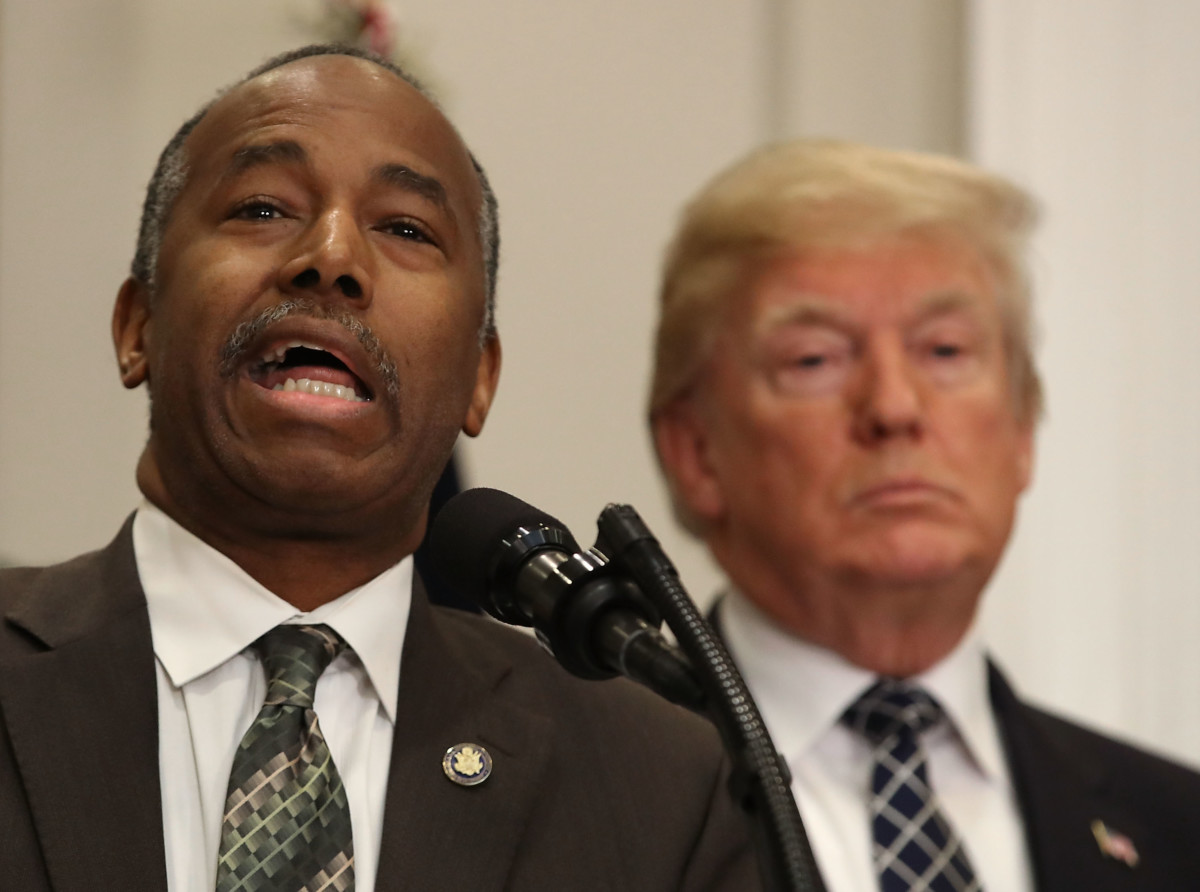With much of the corporate media’s attention focused on Tuesday on President Donald Trump’s latest reported racist remarks, the president’s Department of Housing and Urban Development (HUD) made its latest move away from its core mission of ensuring all Americans of all races have access to fair housing.
Scandalized by Trump’s use of a racist term for a black former White House staffer? Wait till you hear what his administration is doing to fair housing rules, which were put in place to keep wealthy neighborhoods from excluding poor minorities: https://t.co/ujMnqyWyAW
— Lydia DePillis (@lydiadepillis) August 14, 2018
HUD Secretary Ben Carson announced late Monday that he was moving to roll back the Affirmatively Furthering Fair Housing rule (AFFH), a 2015 regulation the Obama administration passed to ensure that local governments that receive federal funding combat racial segregation in housing. The rule was introduced with the intent of making sure communities were observing the 1968 Fair Housing Act, which banned housing discrimination based on race.
Under AFFH, well-off communities that accept federal grants have been pushed to introduce affordable housing to de-concentrate poverty.
Carson has derided the rule as “social engineering” and claimed on Monday that the rule was “suffocating investment” in distressed neighborhoods.
HUD has argued that the benefits of allowing low-income families to move out of impoverished neighborhoods “are likely limited to certain age and demographic groups,” a theory rejected by Lawrence Katz, an economics professor at Harvard and author of a landmark study on the issue.
“Overall, the research shows that deconcentrating poverty is likely to greatly improve the health and well-being of low-income families and to have long-run economic and educational benefits for the children of low-income families,” Katz told Slate.
Without the AFFH in place, communities will be free to shut low-income families out of middle-class areas.
“You’re going back to communities willfully blinding themselves to patterns of segregation,” Sara Pratt, a former HUD attorney under the Obama administration, told NBC News. “Without this rule, communities will not do the work to eliminate discrimination and segregation.”
Several civil rights groups sued HUD earlier this year over its efforts to delay implementation of the rule until at least 2020. Fair housing advocates involved in the suit spoke out against Carson’s latest attack on the AFFH on Tuesday.
#AFFH Rule is at the core of #FairHousing Act. It’s about expanding opportunity, investing in communities, and giving people choice. We have joined with other orgs filing a lawsuit to protect this critical rule. https://t.co/kLTSbCuB6P
— Legal Defense Fund (@NAACP_LDF) August 13, 2018
Speaking against the authoritarian crackdown
In the midst of a nationwide attack on civil liberties, Truthout urgently needs your help.
Journalism is a critical tool in the fight against Trump and his extremist agenda. The right wing knows this — that’s why they’ve taken over many legacy media publications.
But we won’t let truth be replaced by propaganda. As the Trump administration works to silence dissent, please support nonprofit independent journalism. Truthout is almost entirely funded by individual giving, so a one-time or monthly donation goes a long way. Click below to sustain our work.
